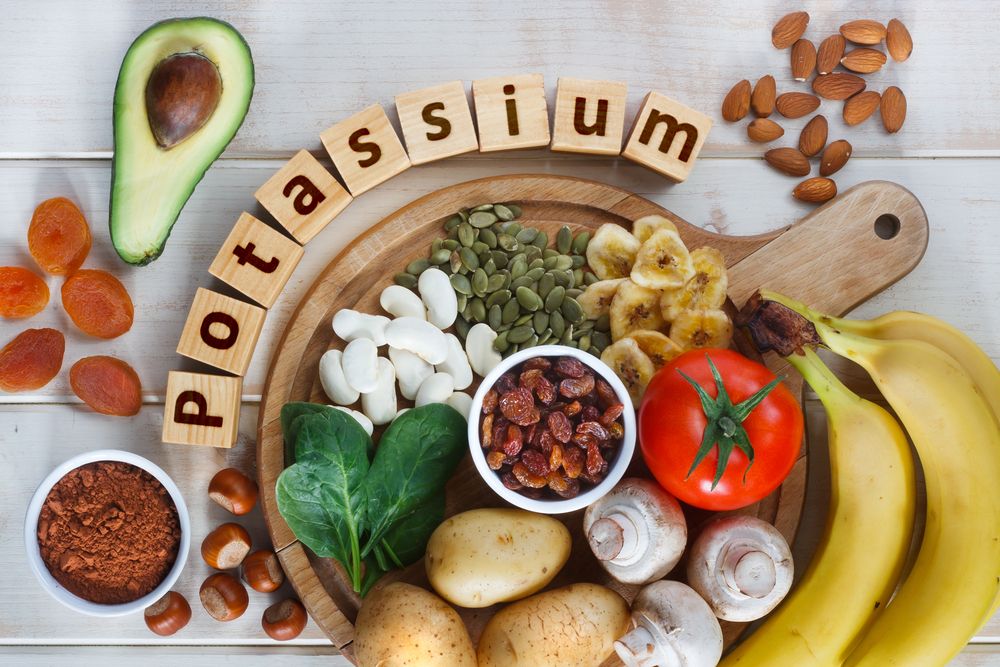Potassium is frequently underestimated in discussions about essential nutrients, yet it plays a crucial role in various bodily functions associated with the heart, nervous system, and muscles. Therefore, it is imperative to include potassium-rich foods in your dietary regimen.
Ensuring an adequate potassium intake can potentially reduce blood pressure and minimize the risk of stroke. Potassium is essential for maintaining fluid balance, supporting cell function, and facilitating a well-functioning nervous system, all of which contribute to healthy muscle contractions.
Potassium plays a critical role in ensuring proper muscle contraction, which is closely tied to heart function. Approximately 80% of the body's potassium resides in skeletal muscles. Insufficient potassium intake can lead to muscle weakness, and, in more severe instances, potential heart problems attributed to inadequate muscle contractions.
While potassium supplements are an option, one of the simplest methods to maintain sufficient potassium levels is by incorporating high-potassium foods and beverages into your diet.
What is the Recommended Daily Potassium Intake?
The U.S. Food and Drug Administration (FDA) has established a daily value (DV) of 4,700 milligrams for potassium for adults and children aged 4 years and older.
In recent years, the 2020-2025 Dietary Guidelines for Americans identified potassium as a nutrient of concern, indicating that most Americans fall short of the recommended intake. Data from 2017-2018 reveals that the average daily potassium consumption in the U.S. was just 2,496 milligrams, equivalent to a mere 53% of the recommended daily value.
The Top Foods High in Potassium, Arranged by Concentration Per Standard Serving from Highest to Lowest
Potassium-rich foods encompass a wide range of options, including fruits, vegetables, dairy products like milk and yogurt, as well as protein sources like poultry, select fish varieties, and legumes.
Among these sources, the majority of Americans primarily obtain their potassium from fruits and vegetables, constituting approximately 23% of their total intake. Following closely behind are grain-based dishes, contributing 15%, and meats, accounting for 10%. However, there are numerous outstanding sources of this essential mineral.
To promote the well-being of your heart, nervous system, and muscles, consider introducing some of the following potassium-rich foods into your diet.
1) Dried Apricots
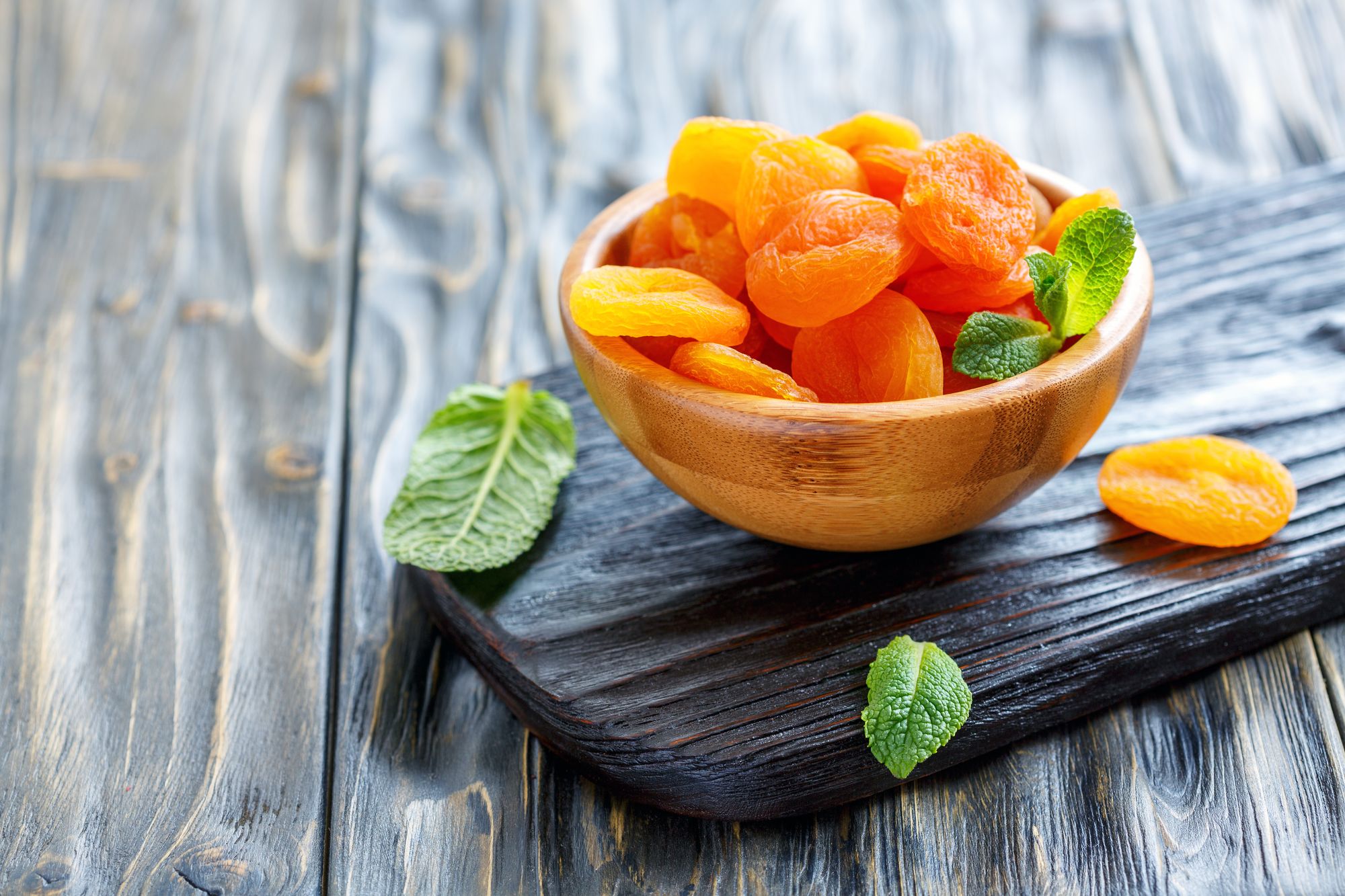
Potassium per 1/2 cup: 755 milligrams (16.1% DV)
Indulging in dried apricots as a snack not only satisfies your sweet tooth but also delivers a significant potassium boost. With a half-cup serving providing 16% of your daily potassium value, along with nearly 5 grams of fiber, it can help keep you satiated until your next meal.
2) Avocado
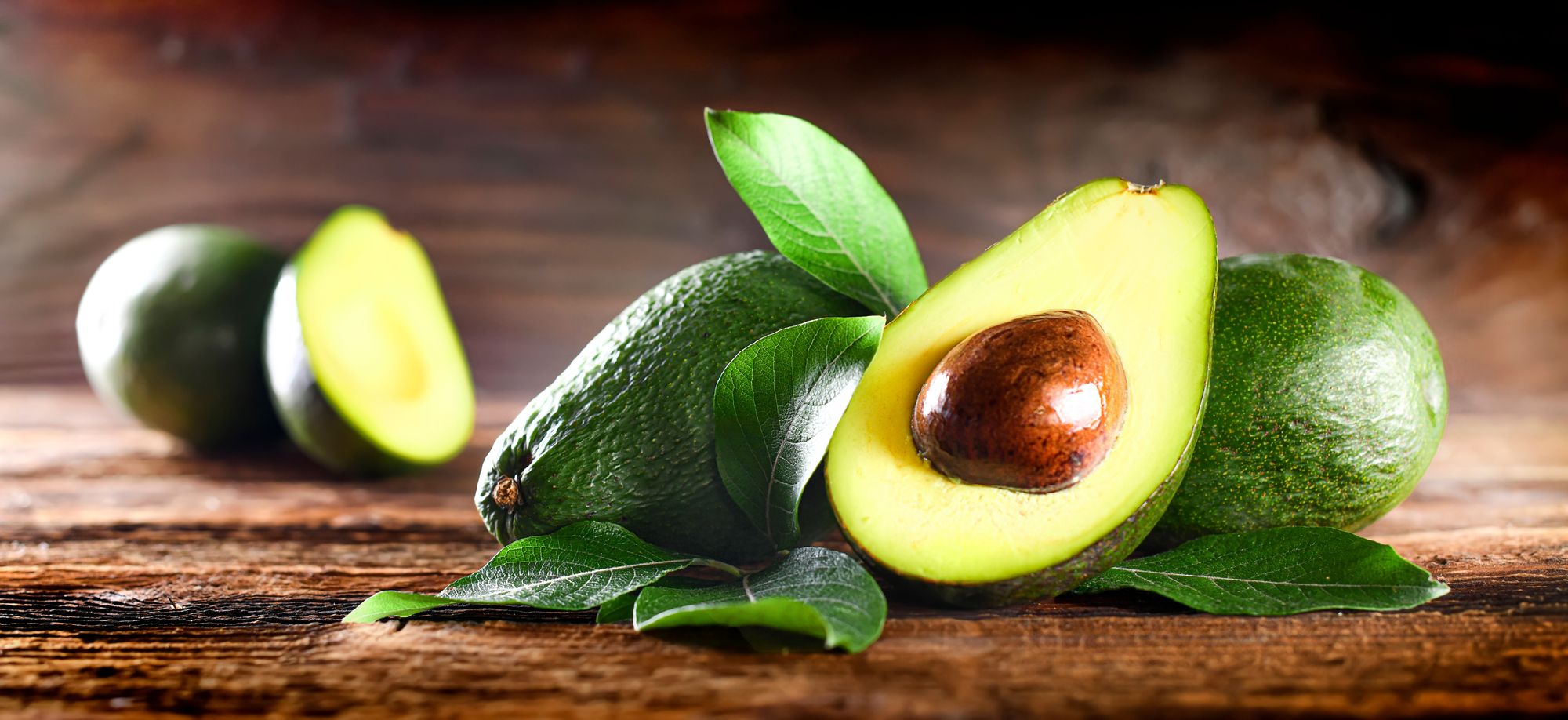
Potassium per avocado: 690 milligrams (14.7% DV
Avocados are incredibly versatile and can enhance a variety of dishes. Whether you're making guacamole, spreading it on toast, pairing it with soup or chili, or blending frozen avocado into your smoothie, you're in for a treat. Regardless of your preferred way to savor this superfood, you'll be delighted to know that it offers nearly 15% of your daily potassium needs, along with 10 grams of fiber and an abundance of healthy fats.
3) Kidney Beans
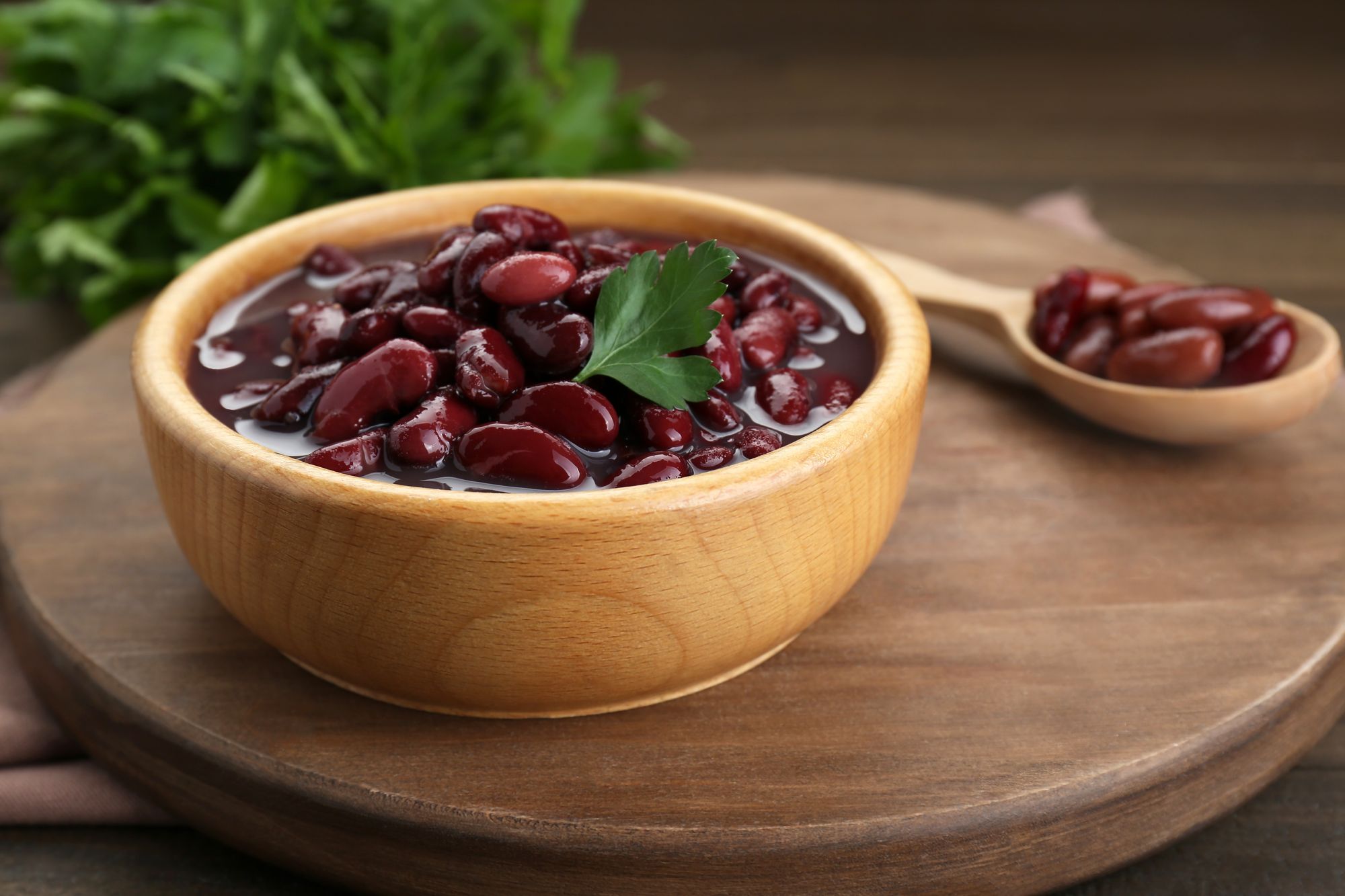
Potassium per 1/2 cup: 607 milligrams (12.9% DV)
Kidney beans offer a substantial 13% of your daily potassium requirement per serving, along with approximately 6 grams of protein and 5 grams of dietary fiber. These nutritious legumes are readily available in canned form and can be incorporated into a wide array of dishes, including soups, curries, chili, salads, and rice preparations. For a crunchy snack option, you can even roast them in the oven.
4) Sweet Potato
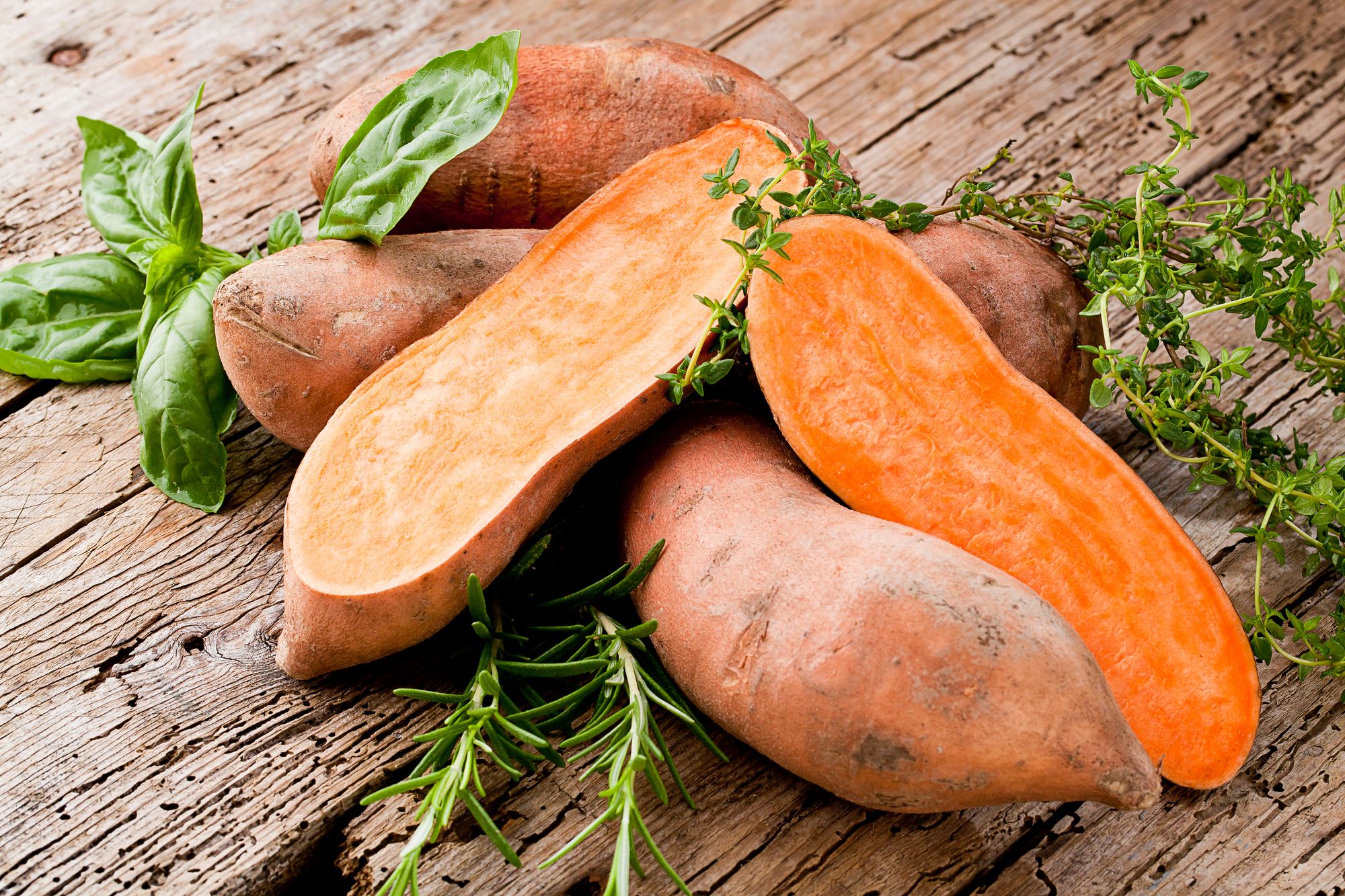
Potassium per medium potato: 542 milligrams (11.5% DV)
This season don't hesitate to indulge in sweet potato casserole, as sweet potatoes are a fantastic source of potassium. They also offer essential fiber, protein, and antioxidants. Beyond the traditional Thanksgiving casserole, you can relish sweet potatoes in various ways, including mashed, roasted, as fries, in soups or chili, or sautéed alongside your favorite vegetables.
5) Orange Juice
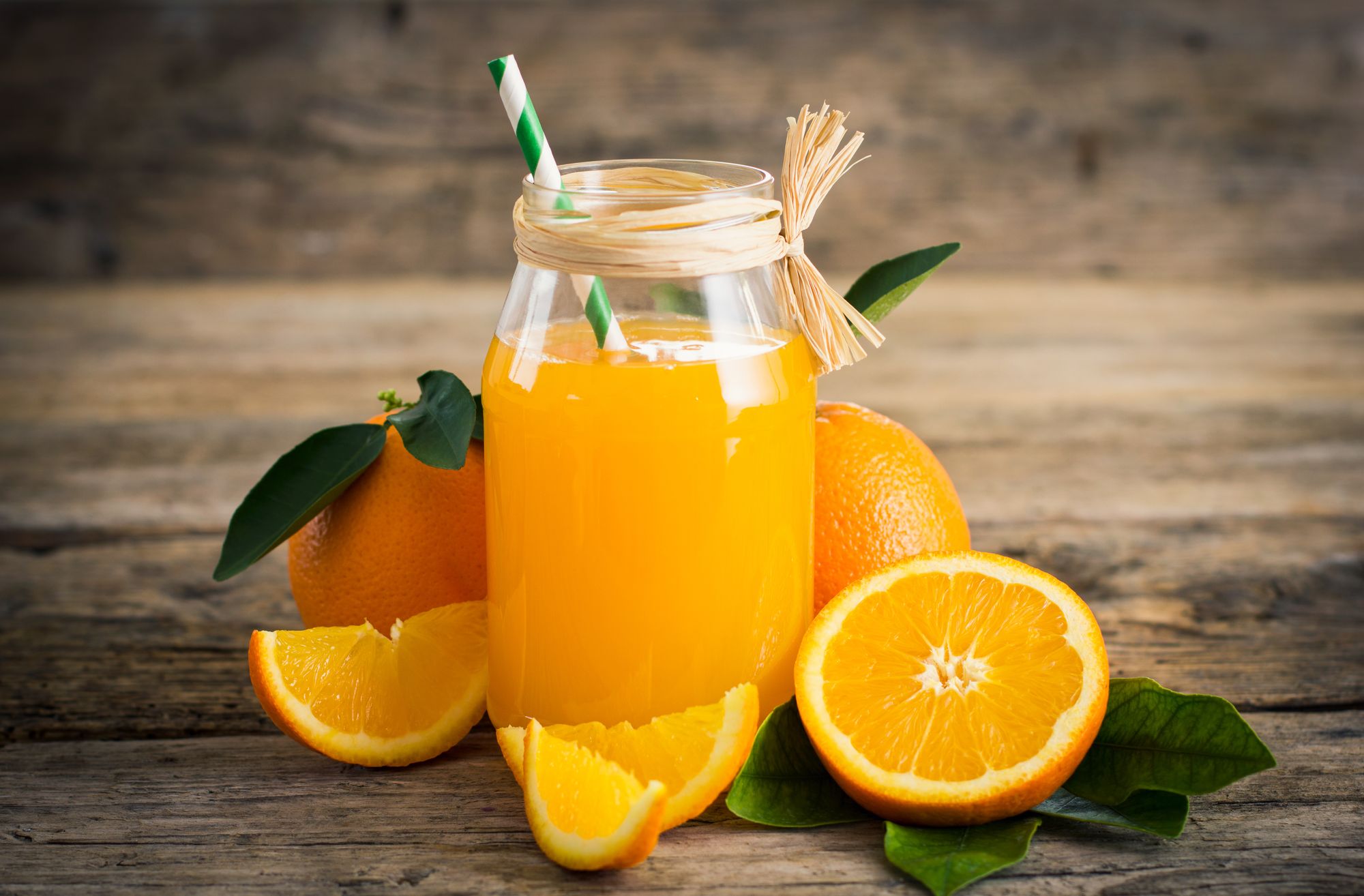
Potassium per 1 cup: 458 milligrams (9.7% DV)
While people often turn to orange juice to increase their vitamin C intake when dealing with a cold or illness, this drink offers more than just a flavorful immunity boost. A single cup of OJ supplies you with nearly 10% of your daily potassium requirement, making it a convenient (and delicious) means to kickstart your day with this essential nutrient.
6) Yogurt
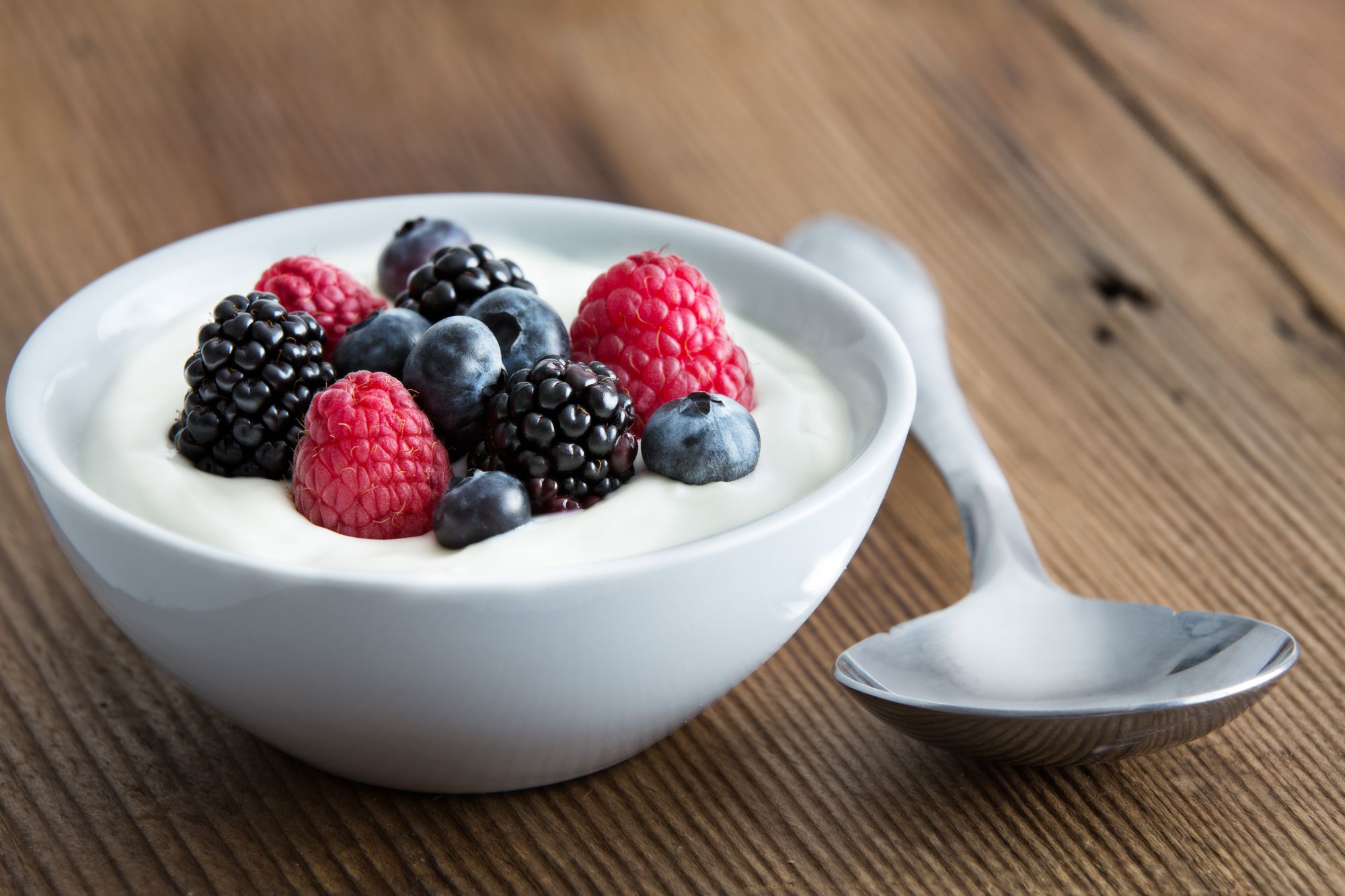
Potassium per 6-ounce container: 398 milligrams (8.5% DV)
Potassium often takes a back seat in discussions about the health benefits of yogurt. Typically, the focus is on its calcium content, protein, or probiotics. However, it's worth noting that most yogurts are also a good source of potassium, providing approximately 8.5% of your daily value, which can support your muscle health objectives.
For an extra potassium boost in your yogurt, consider adding some bananas, apricots, or raisins.
7) Chicken Breast
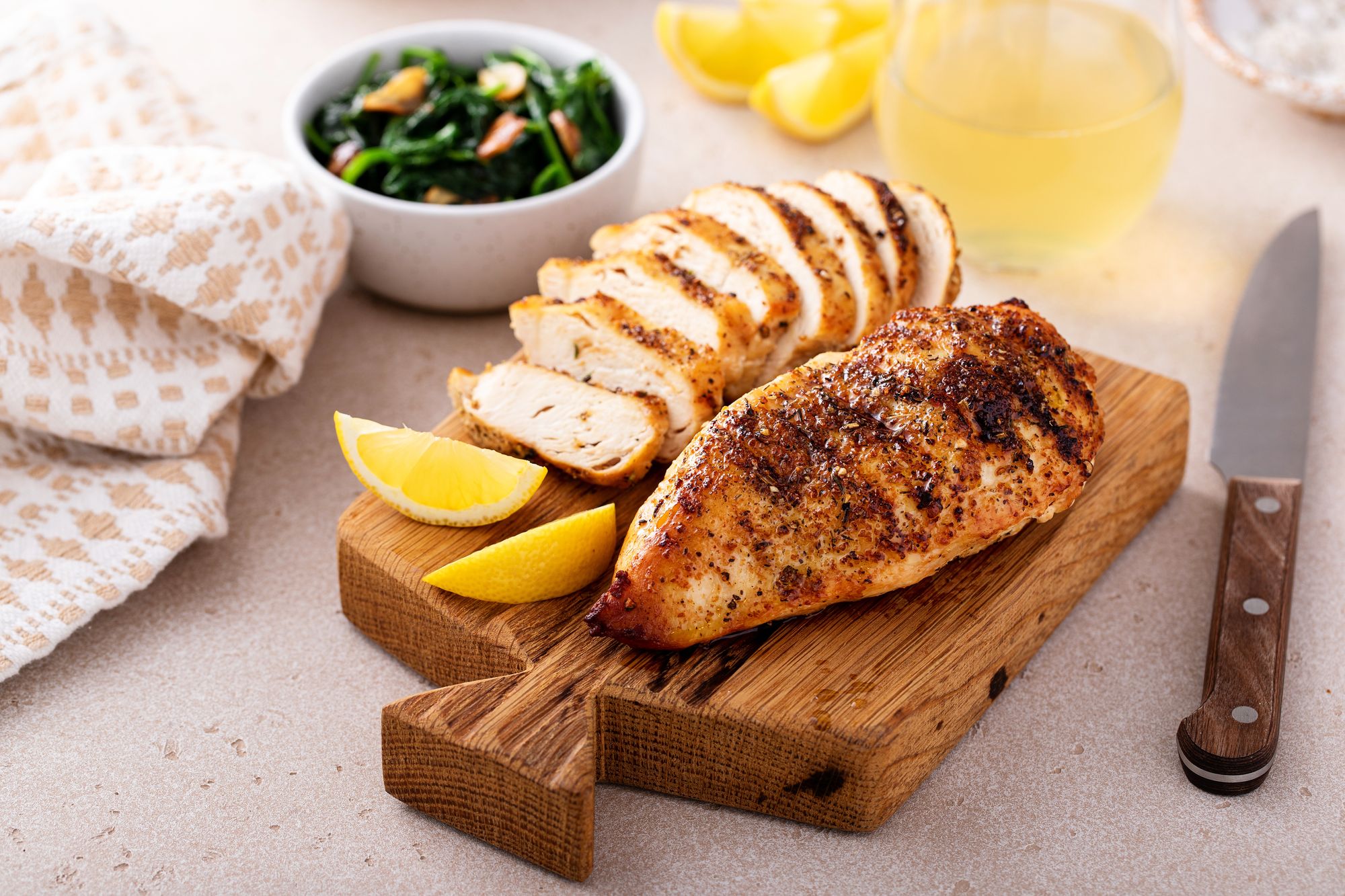
Potassium per 3-ounce serving: 357 milligrams (7.6% DV)
Here's some exciting news: the most favored protein in the United States also happens to be a reliable source of potassium! A 3-ounce serving provides approximately 8% of your daily potassium requirement. If you opt for a whole chicken breast, you'll intake 806 milligrams of potassium, equivalent to 17% of your daily value.
8) Salmon
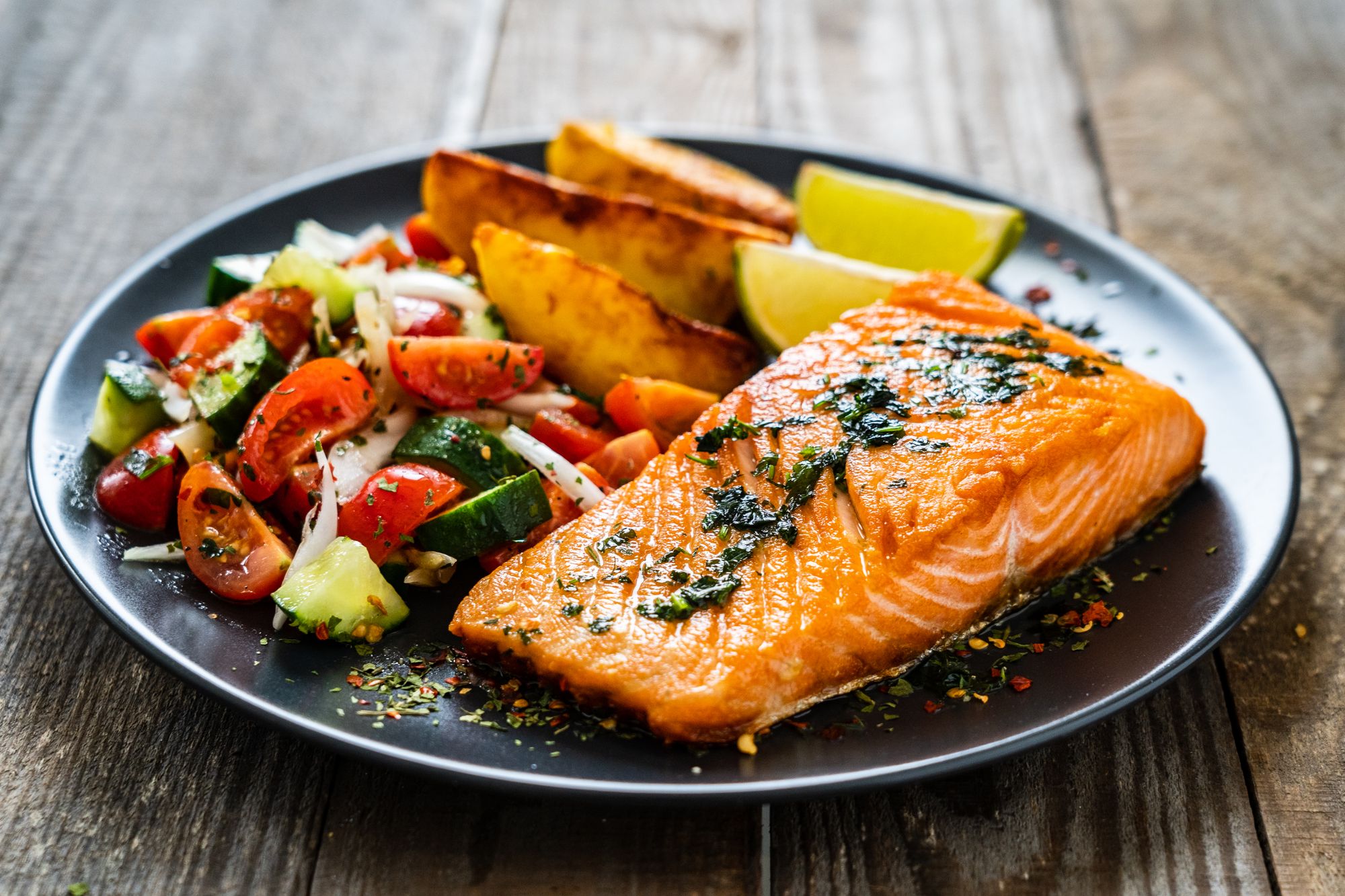
Potassium per 3-ounce filet, farmed: 309 milligrams (6.6% DV)
Salmon is a nutritional powerhouse, packed with protein, beneficial fats (omega-3 fatty acids), and B vitamins. Additionally, each salmon fillet provides a respectable amount of potassium, equivalent to 6.6% of your daily value.
Furthermore, the potassium in salmon supports muscle health, while the omega-3 fatty acids found in salmon (as well as other fatty fish) have been associated with enhanced skeletal muscle strength and increased muscle protein synthesis.
9) White Beans
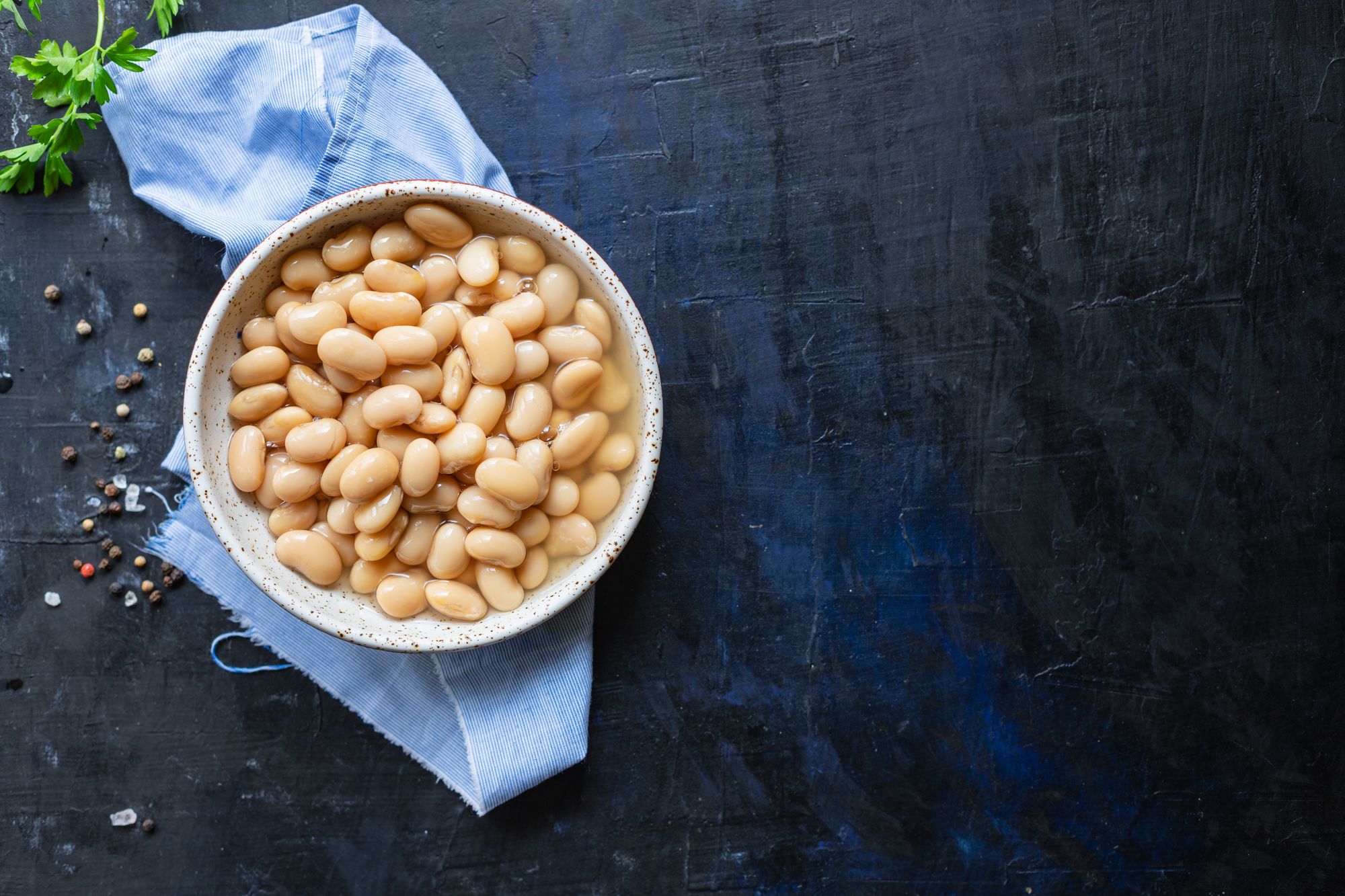
Potassium per 1/2 cup cooked: 500 milligrams (10.6% DV
Beans, across the board, offer outstanding health benefits due to their nutrient density, boasting ample amounts of fiber and protein. Additionally, several bean varieties are rich in potassium. White beans, in particular, stand out in this regard, providing over 10% of your daily potassium requirement per serving. Their mild flavor makes them a versatile choice for enhancing the nutrient content of various soups or chili recipes.
10) Banana
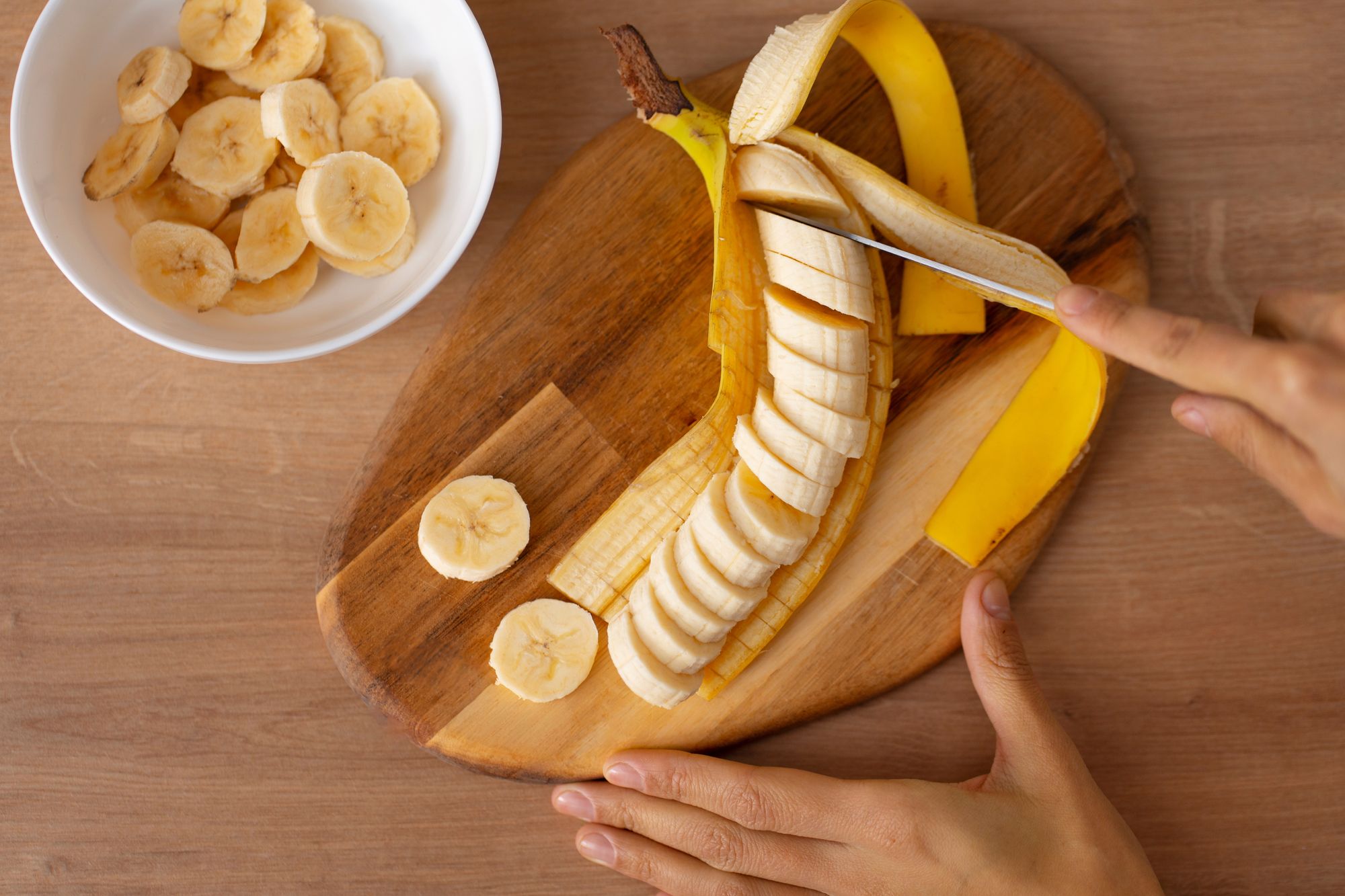
Potassium per medium banana: 422 milligrams (9% DV)
Many of us likely heard that if we need to boost our potassium intake, we should reach for a banana. However, as you can observe, bananas are not at the top of our list. While they are still a good source of potassium, there are numerous other foods that offer even higher levels.
To kickstart your day with a dose of this muscle-friendly mineral, consider adding a banana to your morning oatmeal, smoothie, or yogurt bowl.
11) Raisins
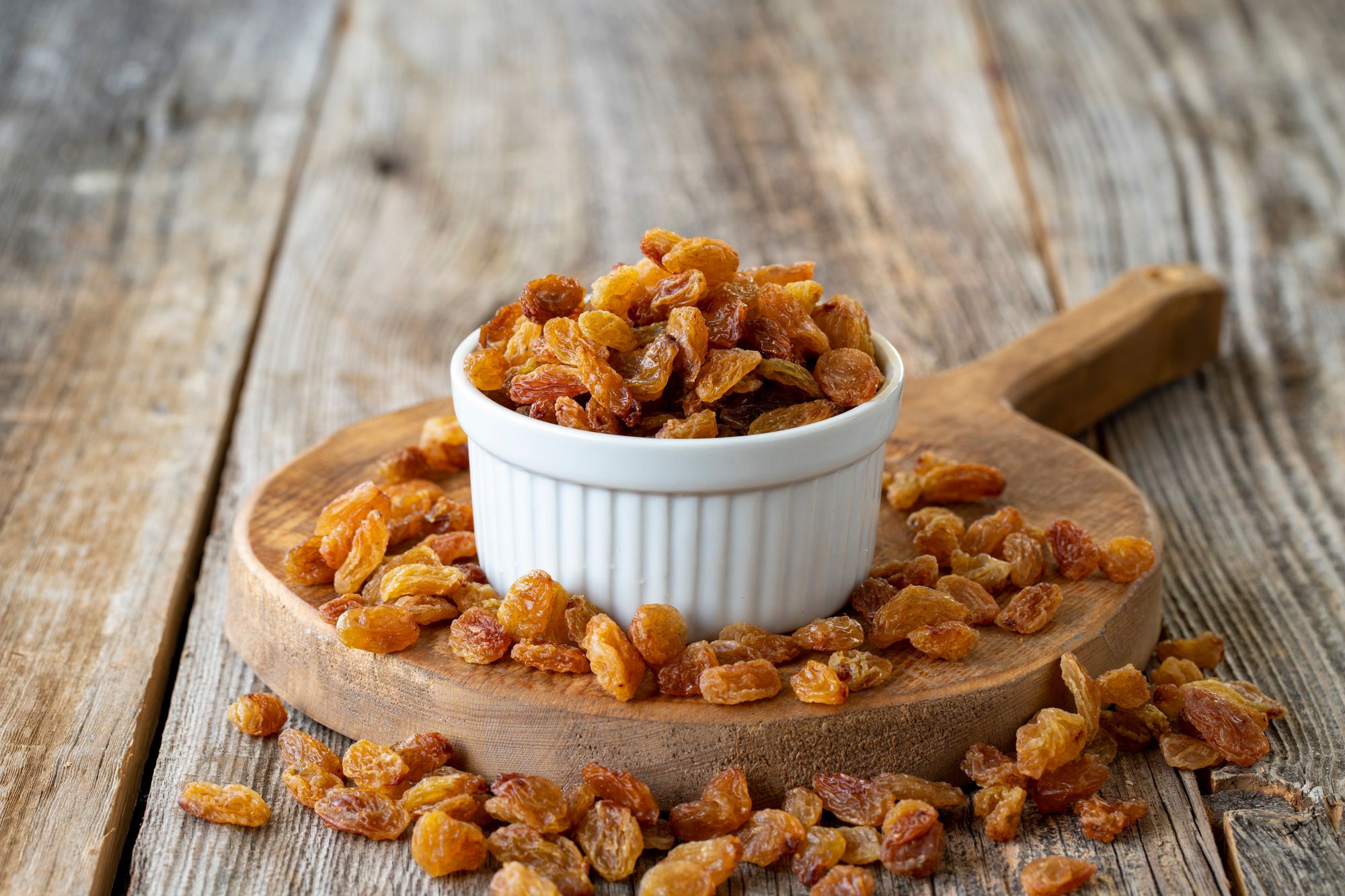
Potassium per 1/4 cup: 300 milligrams (6.4% DV)
Lastly, for a convenient, budget-friendly method to increase your potassium intake, simply grab a handful of raisins. These dried fruits provide over 6% of your daily potassium value, making them an ideal snack option or a nutritious addition to your oatmeal or lunchtime salad.
12) Steak
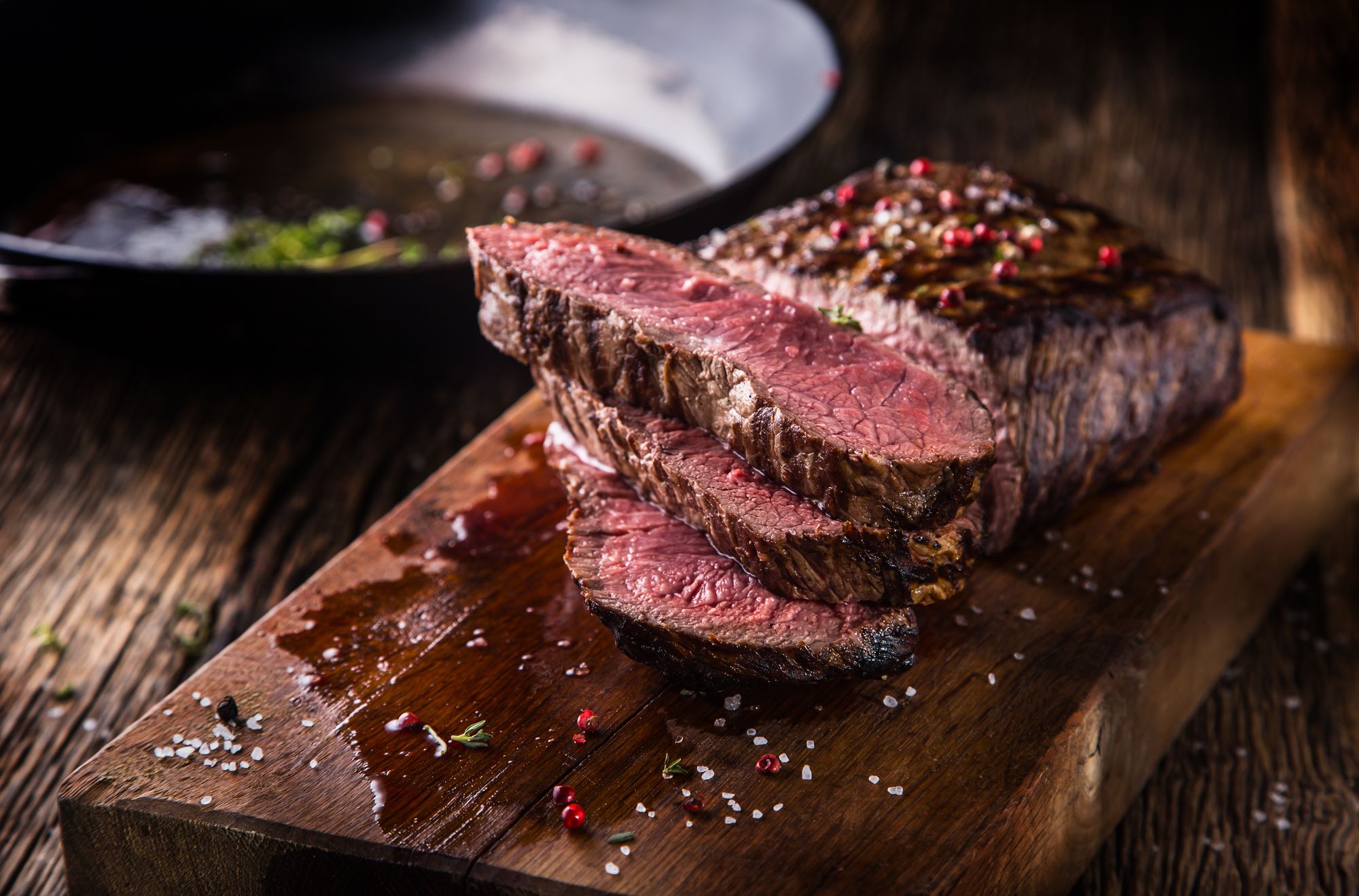
Potassium per 3-ounce top sirloin filet: 324 milligrams (6.9% DV)
Individuals often opt for steak when seeking a protein or iron boost, or simply indulging in a delectable treat. What many steak enthusiasts may not be aware of is that along with protein and iron, steak also provides a dose of potassium, contributing to the maintenance of muscle health.
However, it's essential to note that consuming significant amounts of red meat may not be suitable for everyone, depending on their specific health requirements. Therefore, it's advisable to consult with your healthcare provider before making steak a regular part of your diet.
13) Milk
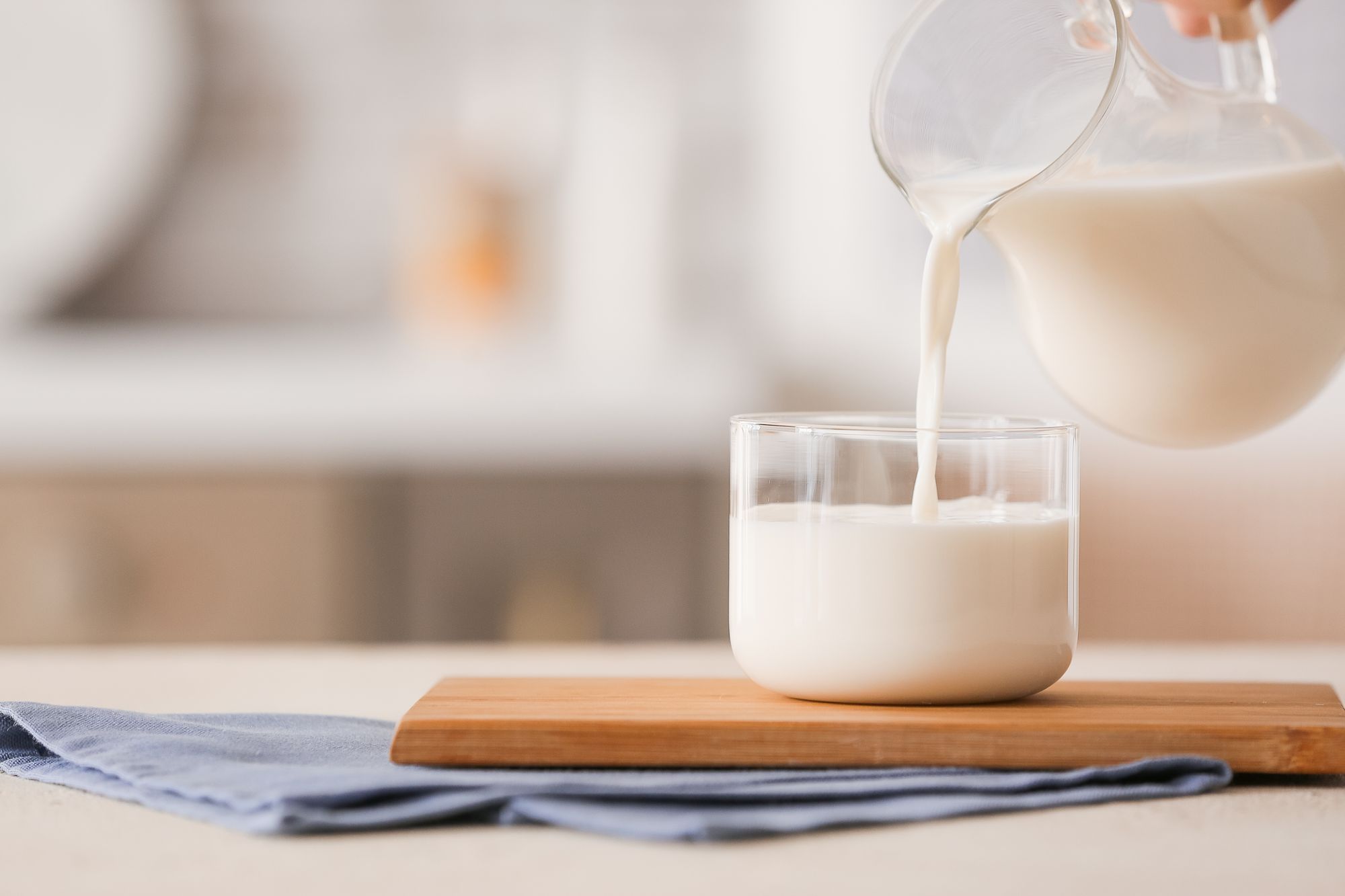
Potassium per 1 cup: 366 milligrams (7.8% DV)
Unless you follow a vegan diet or have lactose intolerance, including dairy milk in your diet can offer numerous health advantages, particularly if you're aiming to enhance your muscle health. Dairy milk is a noteworthy source of both protein and calcium, essential nutrients for promoting stronger and healthier muscles.
In addition to its protein and calcium content, milk also boasts a significant potassium presence, providing nearly 8% of your daily recommended intake per cup.
14) Butternut Squash
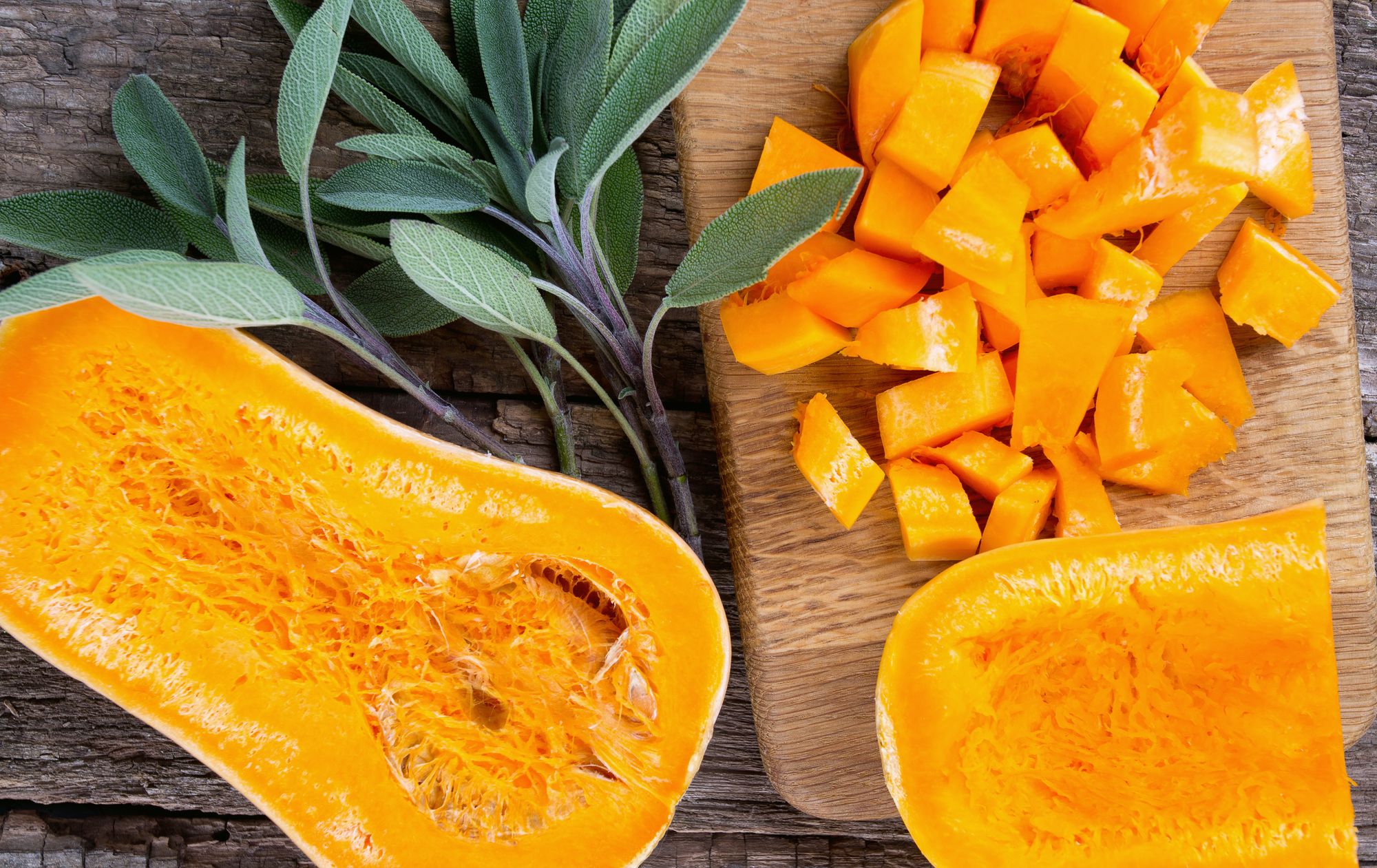
Potassium per 1 cup: 582 milligrams (12.4% DV)
Butternut squash is a versatile vegetable that can contribute to your muscle health and seamlessly integrate into your beloved fall recipes. It boasts more than 12% of your daily potassium requirement, along with a spectrum of nutrients, including fiber, iron, magnesium, selenium, vitamins A and C, and potent antioxidant compounds such as carotene.
Incorporate butternut squash into dishes like soups or pasta or try roasting it in the oven with olive oil and aromatic herbs like sage or rosemary for a delectable treat.
15) Prunes
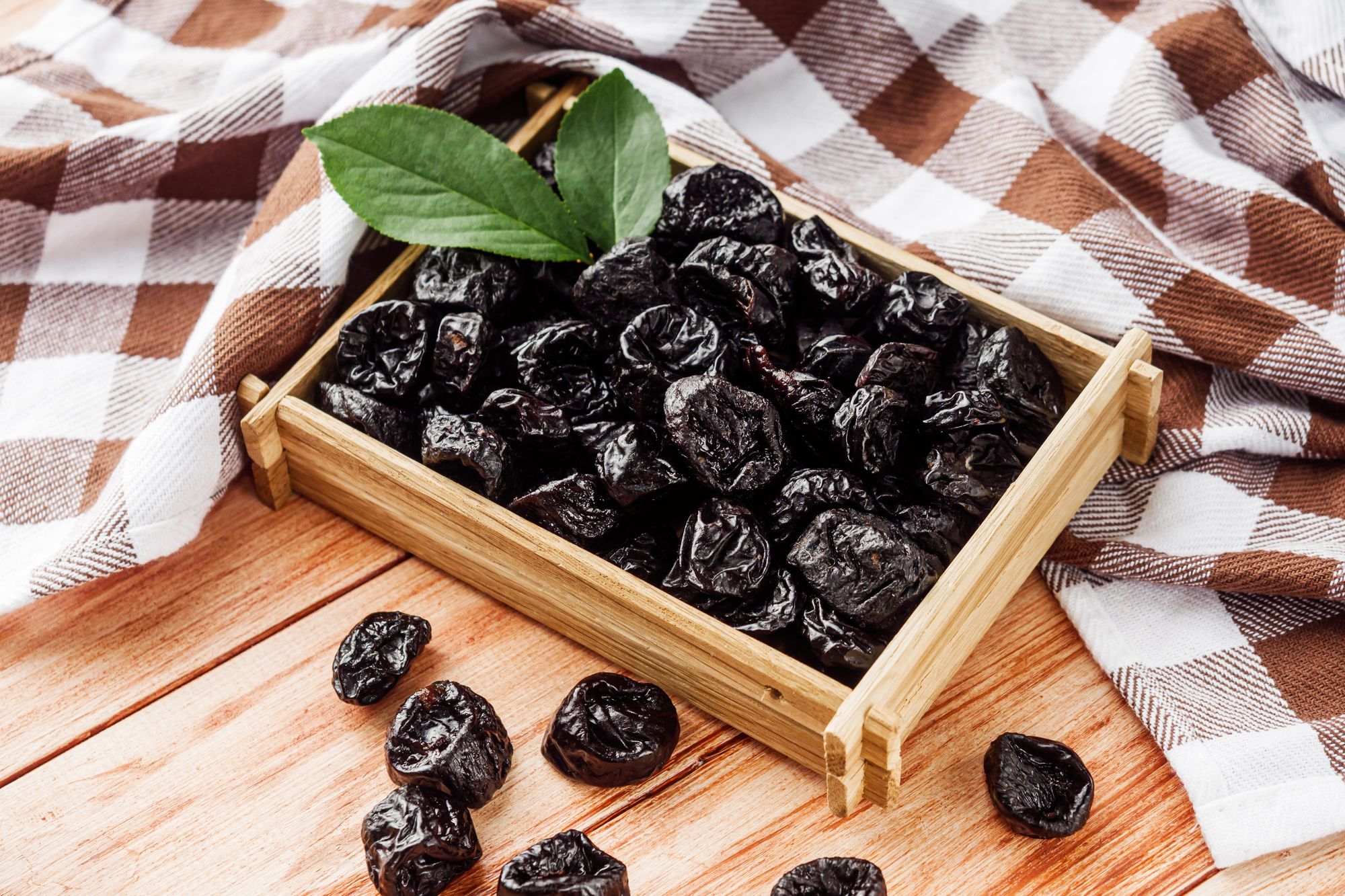
Potassium per 1/2 cup: 635 milligrams (13.5% DV)
Prunes are renowned as a natural solution for constipation, but their benefits extend beyond digestive health. Derived from dried plums, this fruit packs a potassium punch, delivering more than 13% of your daily potassium requirement in each serving.
In addition to potassium, prunes provide a wealth of nutrients, including fiber, vitamin A, choline (beneficial for both muscle and brain health), and plant compounds like carotene, lutein, and zeaxanthin, known for their antioxidant properties.
16) Lentils
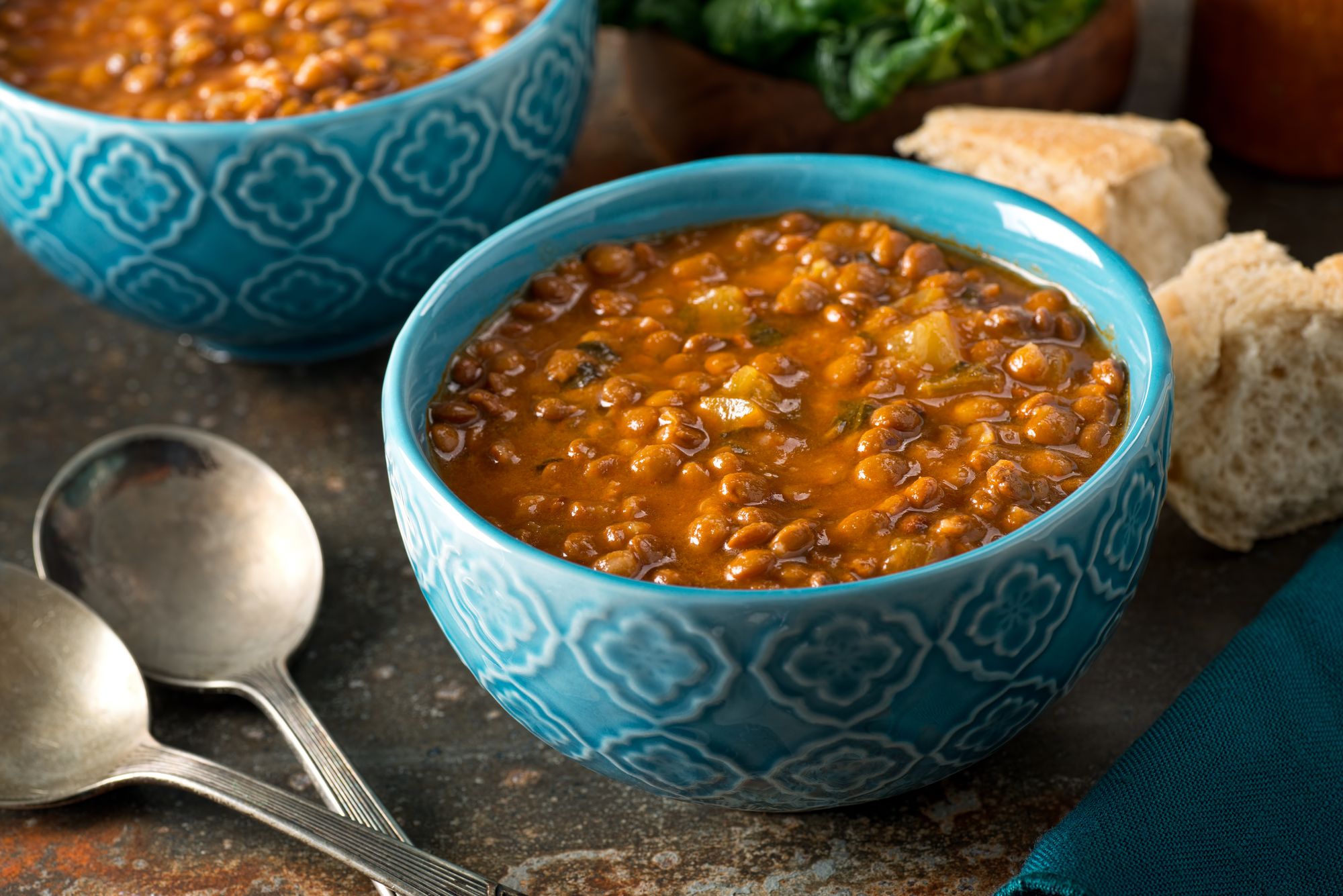
Potassium per cup, cooked: 731 milligrams (15.5% DV)
Prepare a hearty lentil soup or a delectable side dish with this legume to reap the potassium rewards. Offering over 15% of your daily value, lentils present a convenient and budget-friendly means of incorporating this essential nutrient into your meal.
Moreover, lentils excel in soup-making due to their ability to break down while cooking, resulting in a rich, velvety consistency. Enhance the flavor by including your preferred vegetables and meat for an additional protein boost, resulting in a delicious and well-rounded meal.
17) Spinach
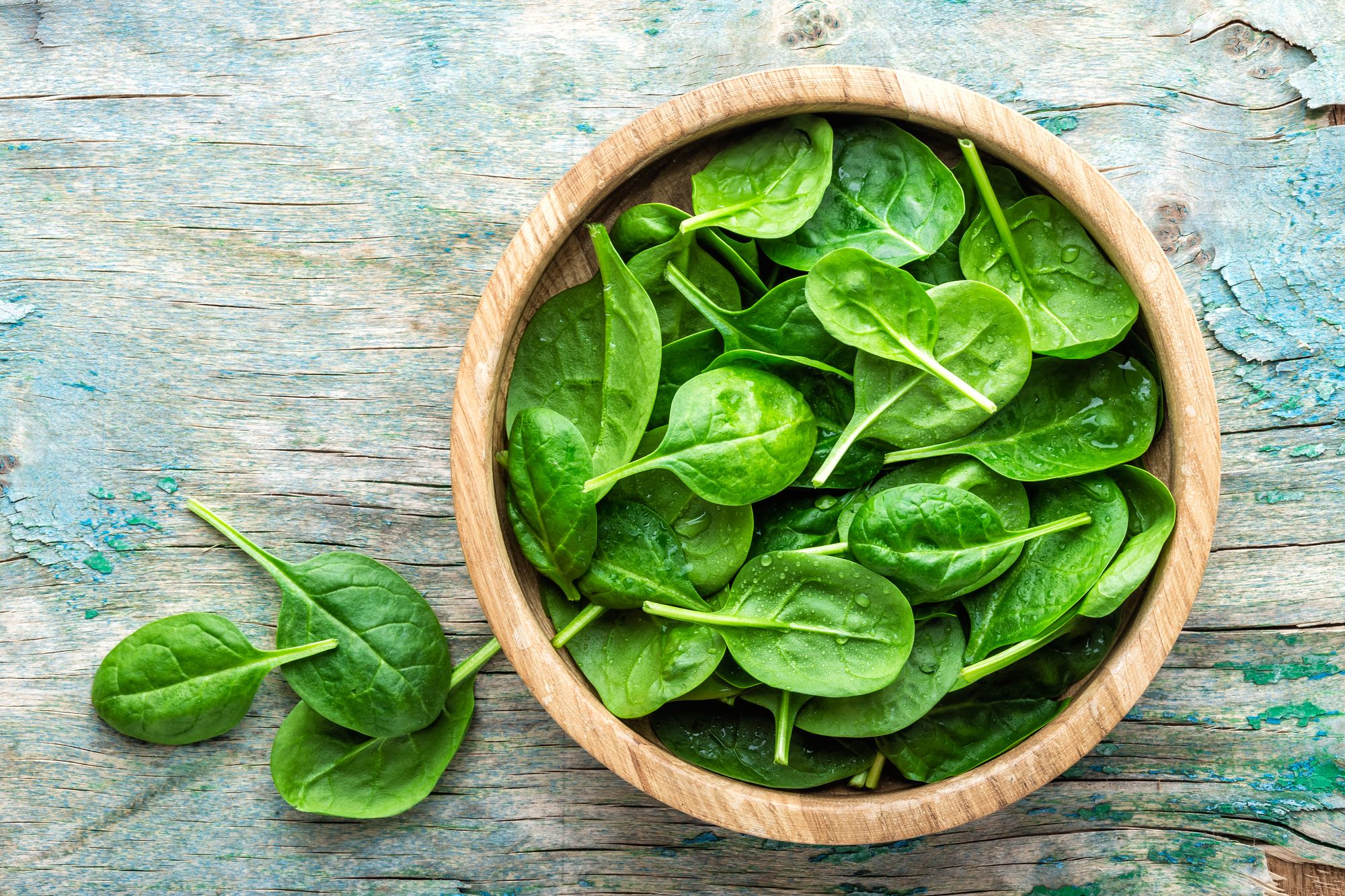
Potassium per cup, cooked: 839 milligrams (17.9% DV)
A serving of spinach not only furnishes you with almost 18% of your daily potassium requirement but also offers a plethora of additional benefits. This superfood is abundant in fiber, iron, vitamins A, C, and K, as well as calcium. In fact, one study even established a connection between supplementing with spinach extract and engaging in regular exercise, leading to enhanced muscle health in adults aged 50 and above.
To harness the muscle-boosting advantages of spinach, consider sautéing it, creating a revitalizing salad, or incorporating it into your next smoothie.
18) Sundried Tomatoes
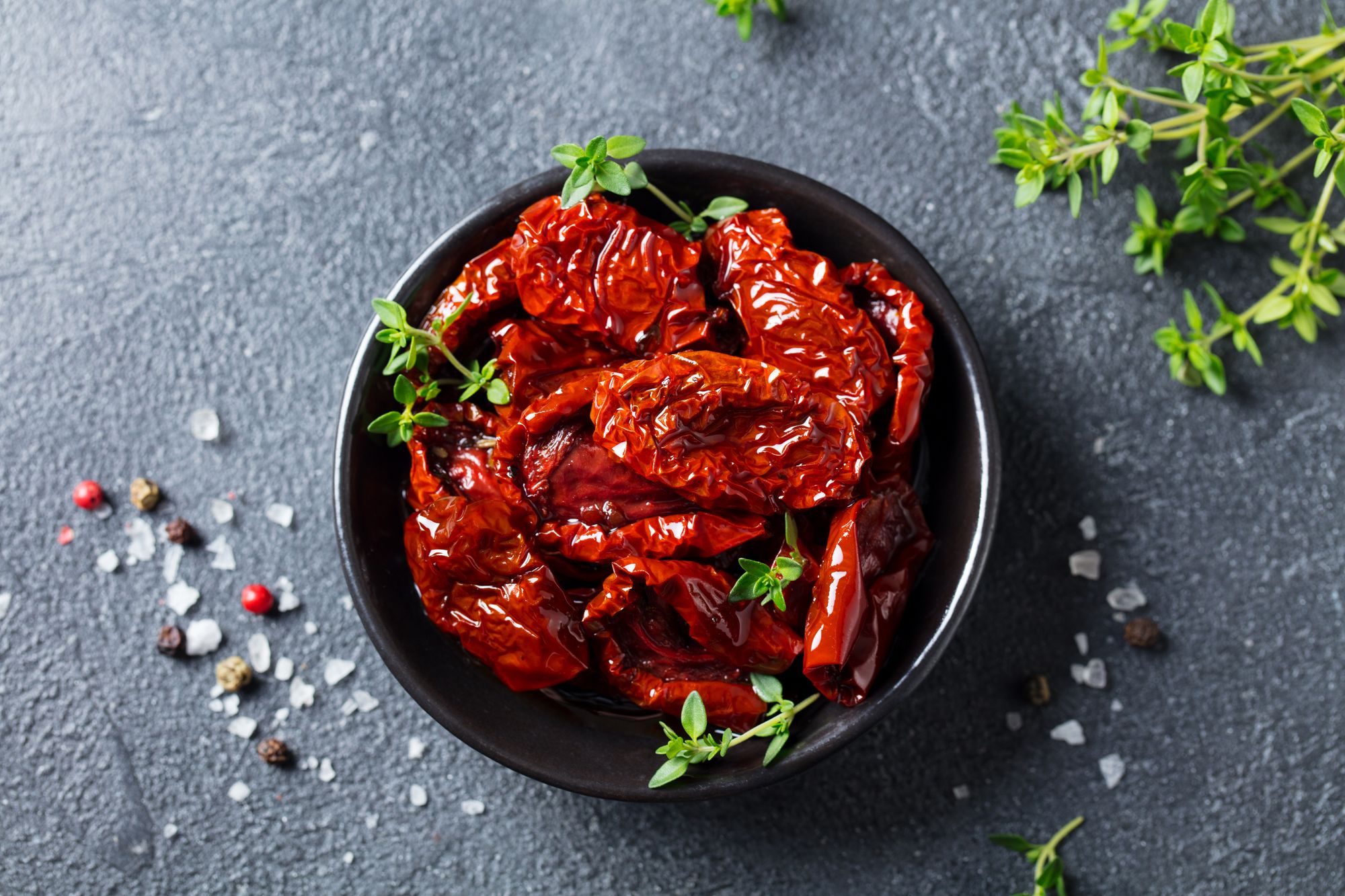
Potassium per 1/2 cup: 925 milligrams (19.7% DV)
Whether you're adding them to your pasta or placing them on your homemade pizza, sun-dried tomatoes are a potassium powerhouse, offering nearly 20% of your daily potassium requirement in just half a cup.
In addition to their significant potassium content, sun-dried tomatoes also supply more than 13% of your daily iron needs, along with over 3 grams of both protein and fiber.
19) Acorn Squash
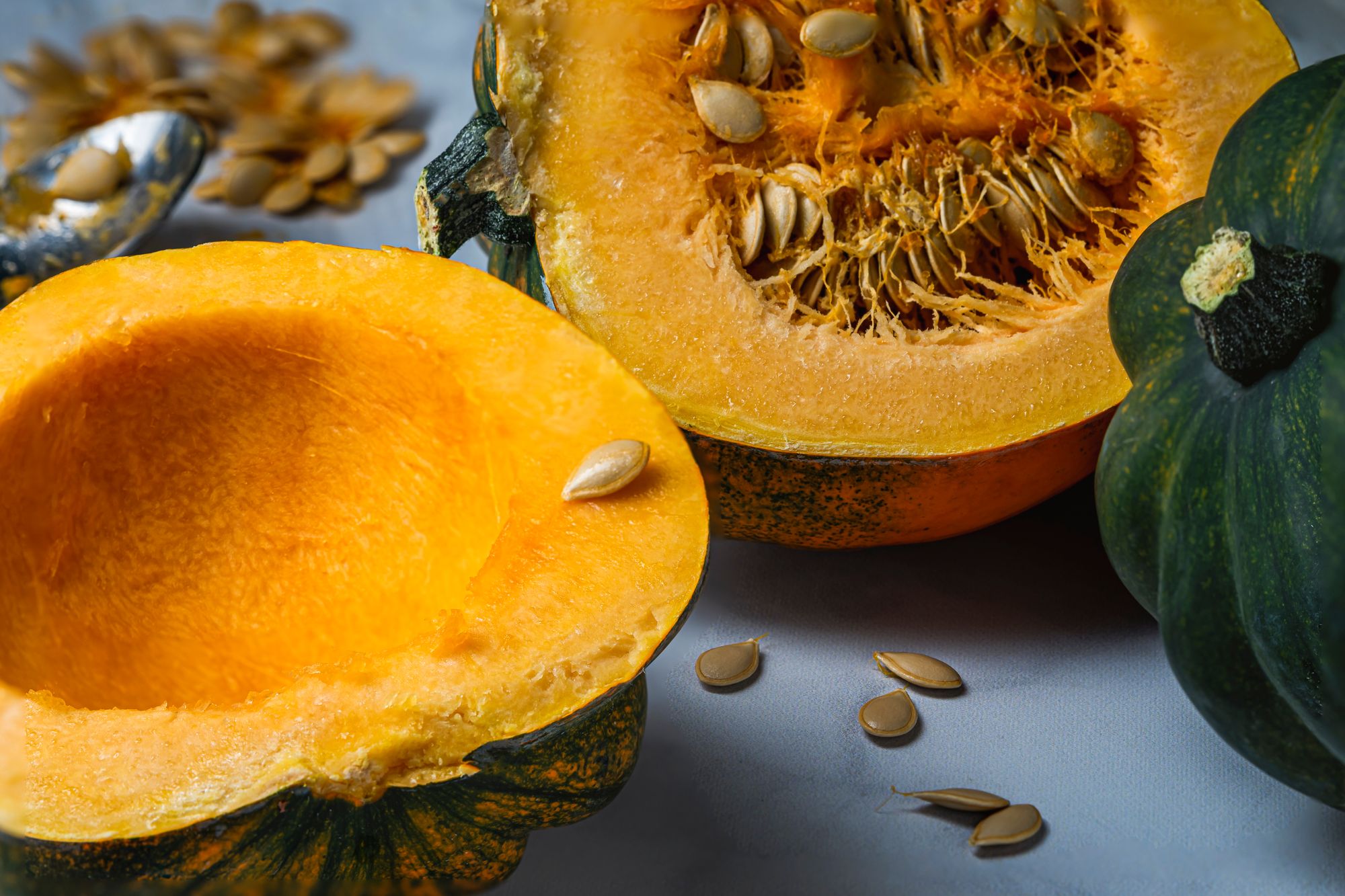
Potassium per cup: 896 milligrams (19.1% DV)
Acorn squash, a winter squash variety, is abundant in potassium, providing 19% of your daily recommended intake. Additionally, it contains a generous supply of antioxidants, vitamins A and C, and dietary fiber, rendering it an exceptionally nutritious vegetable for your beloved comforting winter recipes.
An uncomplicated method for preparing acorn squash involves slicing it in half and roasting it in the oven. You can relish the roasted squash as a standalone dish with a touch of seasoning or incorporate it into soups or chili for a delightful meal.
20) Russet Potato

Potassium per medium potato: 888 milligrams (18.9% DV)
Russet potatoes, also known as white or Idaho potatoes, offer an excellent source of potassium and are incredibly versatile in the kitchen. You can effortlessly incorporate them into a wide range of dishes. To savor nearly 19% of your daily potassium requirement, consider baking a potato, preparing hashbrowns for breakfast, or indulging in homemade fries as a delightful dinner side.

